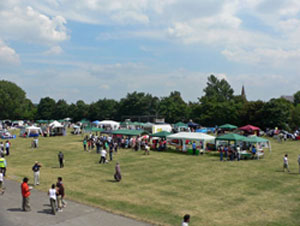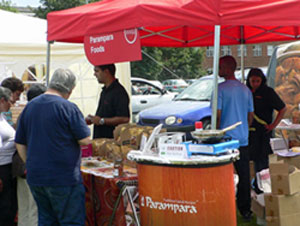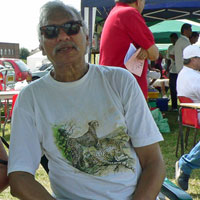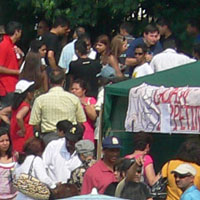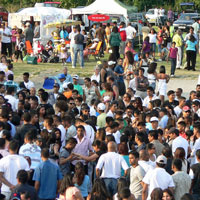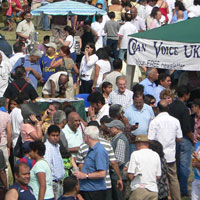
|
Supplement
to Newsletter
Edited by Eddie Fernandes, eddie@fernandes.u-net.com. |
|
UK Goan Festival, 27 July 2008. By Selma Carvalho | ||||
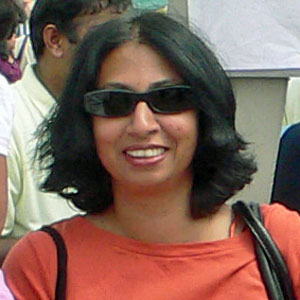 Selma at the Festival |
||||
Archbishop Lanfranc was a radical figure in his time and a friend of William the Conqueror. But when Lanfranc opposed his marriage to Mathilda of Flanders, he so infuriated William that he was sentenced to exile. An order that was stayed at the last minute. So it was at least partly befitting, that the Goan Festival was held at the Archbishop Lanfranc School in Croydon, for those of us who are self-exiled from Goa. The pastel blue pamphlet promised “to express and experience our culture and heritage.” It would be my first Goan gathering in the UK and I was looking forward to it. I was not disappointed on arriving at the Lanfranc School. There was the familiar smell of sorpatel and pulau wafting in the air and, the m/c and band on stage sounded comfortingly familiar. I made a bee-line for the food stalls and bought enough chorizos, prawn para, fish mole, xacuti powder, rechad masala and mango miskut, to feed a small army unit or at the very least my own family for a couple of months. The young boy selling me the chorizos spoke English with a very British accent. But for the chorizos in his hand I would have taken him to be nothing other than British. |
||||
|
||||
I sat with a group of Goan East Afrikanders. They belonged to the first wave of Goan immigrants to the UK. They were almost a community in themselves, having known each other in East Africa. Seraphino Antao, the Gazelle of Kenya, chatted away breezily. He was the Goan who put Kenya on the map by winning two gold medals at the 1962 Commonwealth games in Perth. I could almost be sitting at a country club in Mombasa. Later, I met up with a group that had come from Swindon. I could tell they belonged to the more recent wave of immigration from Goa. I got talking to one of them, a charming young boy who had been in the UK for just four years and was now attending college. He made me sigh with longing for Goa. I wondered if the boy selling chorizos would having anything in common with the boy from Swindon? Other than both of them being of Goan descent, I doubt it. |
||||
|
||||
In diaspora we seek the familiar; a familiar face, food, music. But we are forced by circumstance to live with the unfamiliar. People we work with, neighbours on our street, parents at our children’s school, members of associations we join, who may or may not be Goan or even Indian. These people interact with us at a more personal and deeper level. It’s important to be part of a cultural community but it is also important to keep revising our definition of what constitutes a community. It was a long drive from Lanfranc School in Croydon to W.Drayton, made bearable only by the thought of the chorizos I would cook once I got home followed by a good English trifle for desert. Just as our diets have embraced change over the years, so inevitably will our communities. |
||||
|
||||
Funded by donations from the UK Goan Community. |

